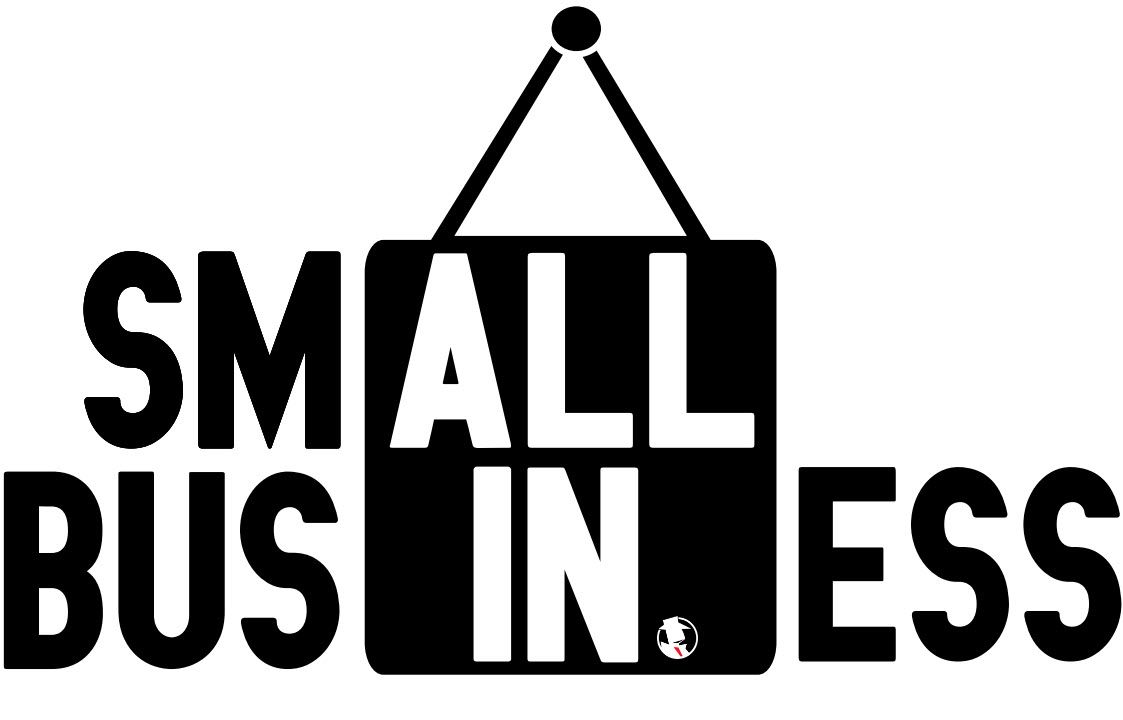It's a new landscape, and small businesses are booming
It might come as a surprise to the average person that small businesses, not large corporations and brands, are the areas seeing the biggest growth these days. In the latter part of 2021, small business growth stood 7% higher than the national average before the 2020 pandemic. The growth of small businesses may be especially surprising since we witnessed so many of them shuttering during the downturn. But as many left their corporate jobs due to layoffs or personal choices, plenty of those professionals decided to become their own boss.
This commitment from employees-turned-entrepreneurs means we are seeing more productive, innovative companies compared to their more established counterparts in big business. It’s an exciting time to start a small business, but with that excitement comes the necessity of focusing on specific areas of your business, such as your marketing and SEO practices.
Take Your Business Online
Launching a new business involves more than just registering an LLC or storefront, setting up a brick-and-mortar location, and turning on the “open” sign. Whether your business will offer a service locally, or you plan on offering products worldwide, an online presence is non-negotiable.
Establishing an online presence ensures the longevity of your business and gives a place for your customers or clients to get to know you. They want to know what makes you stand out from all the competition – and there’s a lot of it! Is your pricing more attractive than your market peers? Is the service you offer available nationwide and therefore a useful resource to people with limited availability in their area? All of the answers to their questions can sit conveniently in one place and become the base camp for SEO tactics.
We know it’s more exciting to get started on the delivery of your products and services, and it’s tempting to leave all the digital implementation for later. But, by taking the time to establish yourself online from day one, you can avoid missing out on early engagement and sales that competitors will easily snatch up in your absence.
Spy On Your Competitors
There are conflicting views out there surrounding competitors, but where SEO is concerned, competitors aren’t your enemy, they’re a source of insight. The businesses that came before you have a wealth of data that can be tapped into for learning how their customers behave, keyword and PPC (price per click) data, and most importantly, to avoid making mistakes.
Run an SEO analysis not just locally, but on national competitors as well. It’s important to get an idea of their SEO footprint to find the keywords they rank for and where you need to focus your efforts to stay relevant in your space.
Looking into their PPC statistics can help you avoid spending money on less effective ad campaigns and can potentially reveal an untapped opportunity to get in front of unreached communities. Stay on top of their ongoing activities by setting up google alerts and conducting regular check-ups on keyword gaps to identify where you measure up to their performance.
Know Your Customers
After knowing your competitors, knowing your customers is next on the list of importance for small business practice. No doubt you have a solid understanding of your products and services and their uses. You might have a rough idea of the typical personas that utilize your offerings, but do you know the exact details for each demographic you’re looking to target? This information dictates the keywords used to find and attract.
Who are they?
First, narrow down the type of person or entity experiencing problems that your product can solve, by creating buyer or customer personas. Then, brainstorm motivations behind why and when they would pull up Google in search of a solution to that problem. Do they want a quick and easy fix, or are they in the research phase of their query?
New generations of internet users research far more before purchasing or subscribing than previous generations. In light of this, it’s important to be a resource for information surrounding your area of expertise and present your business as a solution where it fits most naturally in their decision journey.
Where can you find them?
Once you know the demographics of your targeted audience, you will have coordinating data informing where your customers are located. Even if they are looking for the same type of solution you provide, the online behaviors of an individual between the ages of 30-40 will be far different from those of a CFO in their 50s. The difference in location of your demographic will also change the way SEO is employed to reach them effectively.
Stay On Top of Trends
Loyal customers are willing to follow your small business, but are you willing to follow the direction of their focus as it shifts with new social channels? Large businesses can afford to lose some traffic and engagement with the ebb and flow of evolution in digital marketing, but a small business needs to stay on top of where their customers are being tempted to look elsewhere as the next shiny new platform takes off.
Keep Up with Tech
It’s not enough to bring people in with your awesome SEO, but you have to keep them on your site or social channel long enough to imprint the value you offer. One of the tendencies of small business owners is to go cheap on website hosting in favor of bigger tickets, and potentially less effective forms of marketing. However, this can cost entrepreneurs more money in the long run!
64% of eCommerce customers won’t go back to a website once they’ve had a poor experience. Whether it’s navigation, load speed, or both, it’s imperative that you keep tabs on the quality of your customer’s experience, or they will go elsewhere. It’s best practice to maximize your page speed with a complete load by no more than 3 seconds to keep bounce rates low.
The Goldfish Brain Myth
Even with the human tendency to hop off a slow-moving site, there is still greater potential than previously accepted in holding the average person’s attention. For years now, it’s been widely accepted that our 8-second attention span is shorter than a goldfish’s 9-second abilities. But there is substantial evidence to the contrary.
You’ve worked hard to figure out what makes each customer tick in the personas previously mentioned, so make that research work twice as hard by providing them with the content they want to consume!
Give Them What They Want
Small businesses don’t have to have a small offering when it comes to content available within their niche. Depending on the products and services your business offers, you can craft SEO-rich content that draws new customers apace with your goals. This is where you can make the most human 2 human connections and provide value before pushing a product on them from the beginning of their search.
Long vs Short-Form Content
If staying at the forefront of your customer’s and clients’ minds is your goal, Short-form content can be a great place to start as you build your online presence. Establish a backlog of content for an on-site blog that goes in-depth on topics surrounding your product or services. Social media posts are quick ways to help customers find you or interact with news as your business grows, and newsletters or regular emails can add value to their inbox when they may not otherwise visit your website.
Services based on complex information can put together e-books, whitepapers, or how-to videos that not only add value to clients but increase the reputation of your business as you become a known source of information within the marketplace.
Whatever form of content you choose to combine, don’t miss out on the opportunity to optimize it as much as possible with robust SEO tips drawn from current and reputable sources.
Arrow Keywords Vs. Shots in the Dark
Use SEO tools to pinpoint the most attainable or “arrow” keywords to rank for. The more specific and granular your keywords are, the better chance you have of reaching the right customers during their search. Often, small businesses are not well-informed on best practices to use for research and optimization of their SEO. It is easy to be overwhelmed by the technicality of everything and take a shot in the dark by casting the net too wide with general keywords, or too many at once.
If you’re overwhelmed at the thought of search engine updates that seem to come on a weekly basis, here is a simple reminder to help make the first step toward implementing an effective strategy: SEO is for people, not search engines. By writing solid, engaging, and informative content for people first, you will attract the attention of search engines because of the traffic users bring with them to your site. Search engines like Google are getting smarter and better at recognizing quality content. A keyword-stuffed article, no matter how well researched and how much time is taken to write it, won’t bring the same results as a high-quality (readable!) article will. Hopefully, this tip takes the pressure off as you plan out your content calendar!
Pay For It
After all this advice, it’s time to address what everyone has been thinking since the first paragraph. “How do I pay for good SEO as a small business?” With everything a business owner juggles concerning tight budgets and personally handling almost every aspect of their company, it’s common for digital marketing and SEO to be the first ball to drop.
First, it’s important to build the funds for marketing into your business plan from day one. Many small businesses don’t lay out measurable goals or strategies until they notice low or even zero traffic or they wait until they have enough money to pay someone to do it for them. It’s hard to fund a start-up and even harder to keep one going year after year. Regardless, short-changing yourself and expecting to get great results with no budget is a tough business mistake to overcome.
Second, Keep SEO in your budget at all times. Having a baseline of available funds that enables some kind of maintenance, analysis, and content creation will keep your business from lagging behind and then having to play catchup when funds are tight. However, there are options if you find yourself in a situation early on in your business where you need funds for timely campaigns that can boost your growth. A business credit card or a line of credit for small businesses can help you hire an SEO consultant, or get your team started with an SEO tool that gives you access to competitor keyword data you need to implement new tactics on your own.
Don’t Settle for Small
The impact your small business can make does not have to be limited. Remember your competitors are a sample group that can be used for gathering data you don’t have to wait months or years to gather by yourself. This information coupled with your customer persona research can help you narrow down to an arrow-sharp focus on keyword optimization and keep you from wasting valuable time and money on ineffective campaigns. Even if you have budgeted for roles and tools to handle the day-to-day digital marketing aspects of your business, you don’t have to miss out on windows of opportunity to get extra help or invest in new tools that keep your business running for years to come.


